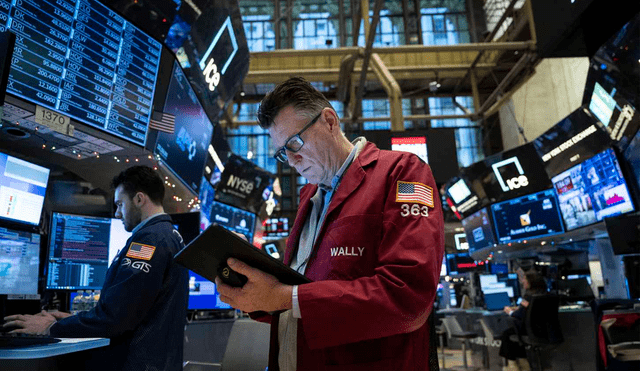Trump’s recession warning sends Dow plunging nearly 900 points
U.S. stocks fell around 900 during major selloff on Monday as concerns over Trump’s tariffs and recession warnings spooked investors, resulting in widespread liquidations across major stock indexes.

U.S. financial markets took a significant hit, with the Dow losing nearly 890 points after President Donald Trump’s recent comments about a possible economic downturn. His remarks about trade policies and the potential for a slowdown heightened fears among traders, causing a broad decline in equity values. The president’s statements about a “period of transition” continued amplified worries about the nation’s economic future, triggering a wave of concern on Wall Street.
The retreat was particularly severe for technology shares, which led the fall. The Nasdaq Composite experienced its most substantial drop since September 2022, while other benchmarks like the S&P 500 and Dow followed with similar declines. This further extended what had already been a poor month for the financial world, with significant losses erasing gains made since the U.S. presidential election in November. Brokers are now left to navigate the unpredictability surrounding Trump’s rules and the potential economic implications ahead.
How did Donald Trump's trade warnings spark market turmoil?
The U.S. head of state’s comments about a projected business slump and ongoing commerce tensions ignited a wave of fear on Wall Street. The uncertainty surrounding his policies, particularly concerning worldwide exchange, caused investors to panic and pull back from risky assets. As concerns about the nation’s fiscal stability grew, a broad market decline ensued, exacerbating an already turbulent period for the economy.
Amid this volatility, some analysts suggest that the sector's reaction is more driven by sentiment than concrete budgetary data. With the Federal Reserve’s interest rate hikes and inflationary pressures also weighing on investor confidence, the combination of these factors has contributed to a greater cautious approach in global banking and investment sectors. Many are now awaiting clearer signals on trade agreements and governance rules on finance before making major investment choices.
Will the U.S. economy navigate trough the uncertainty?
The road ahead for the American wealth persists unstable, with many specialists predicting that the coming months will be crucial in determining its trajectory. The volatility in the areas reflects concerns about the influence of lasting regulations shifts and external factors such as global trade relations. While some expect a rebound, others are cautious, forecasting that economic challenges may persist.
As the situation evolves, attention will be on key monetary indicators, including inflation and consumer spending, to gauge the overall health of the industry. Investors and policymakers alike will need to closely monitor these trends to make informed decisions. How the business sector adapts to these turbulent times will likely shape the future outlook for both firms and consumers.












